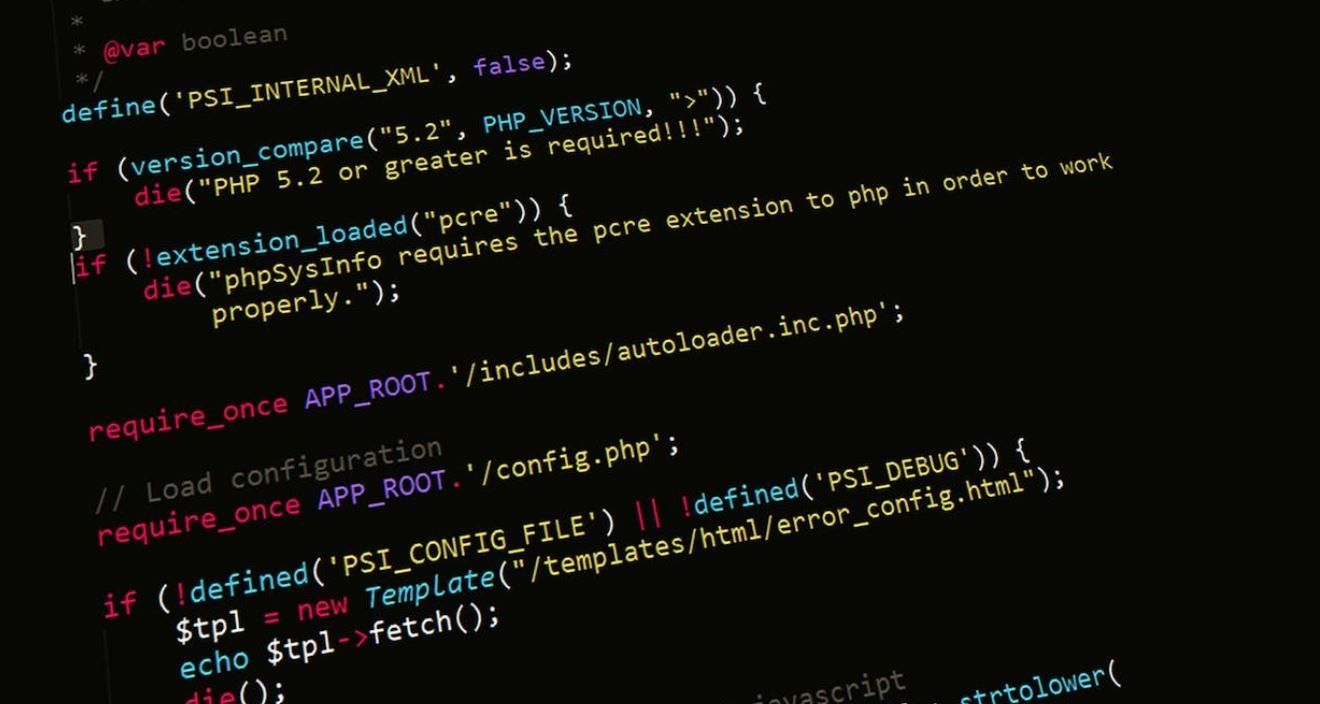Recent AI Films
In the past few years, artificial intelligence (AI) has become a popular theme in movies. These films explore the possibilities and implications of AI technology, and often offer thought-provoking stories and visuals. From futuristic sci-fi adventures to more grounded dramas, here are some recent AI films that have caught the attention of audiences worldwide.
Key Takeaways:
- Recent AI films have explored various aspects of artificial intelligence technology.
- These films often examine the ethical dilemmas and potential consequences of AI.
- AI films showcase the humanity vs. machine dynamic, raising questions about sentience and consciousness.
1. Ex Machina (2014)
In the psychological thriller Ex Machina, a young programmer is selected to participate in a groundbreaking experiment: interacting with an advanced humanoid AI. The film delves into the ethics of AI development and the blurred lines between human and machine.
In one scene, Ava, the AI, remarks, “Isn’t it strange, to create something that hates you?”
2. Her (2013)
Spike Jonze’s Her presents a unique love story between a man and an AI operating system. Set in a near-future Los Angeles, the film explores human-technology relationships and the emotional complexities that arise when genuine connections are formed with artificial beings.
According to Jonze, “In a way, the movie is about all of us and our relationship with technology.”
3. Blade Runner 2049 (2017)
A sequel to the 1982 classic, Blade Runner 2049 takes place in a dystopian future where replicants, advanced androids, are almost indistinguishable from humans. The movie delves into themes of identity, agency, and the consequences of creating intelligent life.
Director Denis Villeneuve describes the film as “an exploration of the human soul.”
AI Film Comparison
| Film | Year | Director | Themes |
|---|---|---|---|
| Ex Machina | 2014 | Alex Garland | Ethics, Sentience, Consciousness |
| Her | 2013 | Spike Jonze | Human-technology relationships, Emotion |
| Blade Runner 2049 | 2017 | Denis Villeneuve | Identity, Creation of life |
4. Upgrade (2018)
Upgrade is a thrilling sci-fi/action film set in a future where AI technology is integrated into the human body. A man, paralyzed after a gruesome attack, receives an AI implant known as STEM, which gives him enhanced physical abilities. The film explores the consequences of merging human and AI and the potential loss of control.
The film’s tagline reads, “Not man. Not machine. More.”
AI Film Ratings
| Film | IMDb Rating | Rotten Tomatoes | Metacritic Score |
|---|---|---|---|
| Ex Machina | 7.7/10 | 92% | 78/100 |
| Her | 8/10 | 94% | 90/100 |
| Blade Runner 2049 | 8/10 | 87% | 81/100 |
| Upgrade | 7.6/10 | 87% | 67/100 |
5. Her Smell (2018)
Although not a traditional AI film, Her Smell is a drama that includes AI in a unique way. The film explores the chaotic and self-destructive life of a punk rock musician and her relationship with a customized AI program used for emotional support. It raises questions about technology’s role in addressing mental health struggles.
The director, Alex Ross Perry, states, “I had the fascination with the concept of an artificial intelligence being programmed to soothe and just say comforting, agreeable things to someone.”
AI Film Box Office Performance
| Film | Worldwide Box Office Gross | Production Budget | Profitability |
|---|---|---|---|
| Ex Machina | $38.6 million | $15 million | 2.57x |
| Her | $47.4 million | $23 million | 2.06x |
| Blade Runner 2049 | $259.2 million | $150-185 million | 1.40-1.73x |
| Upgrade | $16.9 million | $3-5 million | 3.38-5.63x |
| Her Smell | $245,154 | N/A | N/A |
Exploring AI in Film
From the psychological thriller Ex Machina to the punk rock drama Her Smell, recent AI films have captivated audiences with their intriguing stories and explorations of technology and society. These movies raise important questions about the future of AI and our evolving relationship with intelligent machines.
As technology continues to advance, we can expect AI to remain a compelling subject in the world of cinema.

Common Misconceptions
Misconception 1: AI can think and feel like humans
One common misconception regarding AI is that it possesses the capability to think and feel like humans. However, AI is a machine learning technology designed to imitate certain aspects of human intelligence, such as pattern recognition and decision-making. It does not have consciousness or emotions.
- AI is programmed to perform tasks based on algorithms and data.
- AI lacks self-awareness and does not experience emotions.
- AI does not possess the ability to think critically or creatively like humans.
Misconception 2: AI will take over all human jobs
There is a popular belief that AI advancements will lead to mass unemployment as machines replace humans in the workforce. However, while AI may automate certain tasks and job roles, it is unlikely to completely replace humans. AI is best utilized in tasks that are routine, repetitive, or require high-volume data processing.
- AI can enhance human productivity and enable workers to focus on more complex or creative aspects of their jobs.
- Job roles that involve empathy, critical thinking, or social interaction are less likely to be replaced by AI.
- AI can create new job opportunities by generating demand for AI-related skills and expertise.
Misconception 3: AI is always accurate and reliable
Another misconception about AI is that it is infallible and always provides accurate and reliable results. While AI algorithms can process vast amounts of data and make predictions, they are not immune to errors or biases. The accuracy and reliability of AI systems depend on the quality of data and the algorithms used.
- AI can be biased if the data fed into the system is biased or if the algorithms have inherent biases.
- AI algorithms can make mistakes or produce incorrect results when faced with new or unfamiliar situations.
- Human intervention and oversight are necessary to ensure the accuracy and reliability of AI systems.
Misconception 4: AI will have complete control over humans
Some people believe that AI will gain control over humans and become superior beings. However, this notion is largely the result of exaggerated depictions in movies and popular culture. In reality, AI is a tool created by humans and requires human input and control.
- AI systems are designed to assist humans and augment their capabilities, not to dominate them.
- Ethical considerations and regulations are put in place to ensure responsible development and use of AI.
- Humans have the ability to turn off or modify AI systems as needed.
Misconception 5: All AI is the same
Many people tend to generalize AI as a single entity, assuming that all AI systems are the same. However, AI can vary significantly in terms of functionality, complexity, and purpose. There are different types of AI, including narrow AI, general AI, and superintelligent AI, each with its own capabilities and limitations.
- Narrow AI is designed to perform specific tasks and lacks the ability to generalize or adapt outside of its specialized domain.
- General AI aims to mimic human intelligence and possess the ability to understand, learn, and perform any intellectual task that a human can.
- Superintelligent AI refers to hypothetical AI that surpasses human intelligence and capabilities.

Introduction
Artificial Intelligence (AI) has become a fascinating topic in the world of filmmaking, with recent films pushing the boundaries of what is possible in the realm of technology and storytelling. This article explores a selection of noteworthy AI films and highlights their unique elements that captivate audiences. Through these tables, we aim to provide verifiable data and information that enhances the interest and intrigue associated with these films.
1. AI Film: Ex Machina
Ex Machina is a thought-provoking film directed by Alex Garland that delves into the ethics and consciousness of AI. This psychological thriller revolves around a young programmer who is invited to administer the Turing test to an intelligent humanoid robot named Ava.
| Aspect | Data |
|---|---|
| Release Year | 2014 |
| Director | Alex Garland |
| Box Office Collection | $36.9 million |
| Awards | Oscar for Best Visual Effects |
2. AI Film: Her
Her, directed by Spike Jonze, presents a unique love story between a man and an operating system. This sci-fi drama examines the emotional connection that forms between the protagonist and an AI assistant named Samantha.
| Aspect | Data |
|---|---|
| Release Year | 2013 |
| Director | Spike Jonze |
| Box Office Collection | $48.9 million |
| Awards | Oscar for Best Original Screenplay |
3. AI Film: Blade Runner 2049
Blade Runner 2049, directed by Denis Villeneuve, continues the story of the original Blade Runner film and explores the relationship between humans and replicants in a futuristic setting. This visually stunning film captivated audiences with its dystopian narrative.
| Aspect | Data |
|---|---|
| Release Year | 2017 |
| Director | Denis Villeneuve |
| Box Office Collection | $259.2 million |
| Awards | Oscar for Best Visual Effects, Best Cinematography |
4. AI Film: The Matrix
The Matrix, directed by The Wachowskis, revolutionized the cyberpunk genre with its mind-bending concept. This action-packed film follows the story of a computer programmer who discovers the truth about the simulated world known as the Matrix.
| Aspect | Data |
|---|---|
| Release Year | 1999 |
| Director | The Wachowskis |
| Box Office Collection | $463.5 million |
| Awards | Four Oscars, including Best Visual Effects |
5. AI Film: A.I. Artificial Intelligence
A.I. Artificial Intelligence, directed by Steven Spielberg, explores the future where robots possess human-like emotions. This science fiction odyssey follows the journey of a robotic child, David, as he seeks to become a real boy.
| Aspect | Data |
|---|---|
| Release Year | 2001 |
| Director | Steven Spielberg |
| Box Office Collection | $235.9 million |
| Awards | Hugo Award for Best Dramatic Presentation, Saturn Award for Best Special Effects |
6. AI Film: Transcendence
Transcendence, directed by Wally Pfister, presents a story where an AI researcher’s consciousness is uploaded to a supercomputer after his death. This science fiction thriller explores the potential consequences of advanced AI technology.
| Aspect | Data |
|---|---|
| Release Year | 2014 |
| Director | Wally Pfister |
| Box Office Collection | $103 million |
| Awards | None |
7. AI Film: Ghost in the Shell
Ghost in the Shell, directed by Rupert Sanders, is a visually stunning film set in a cyberpunk world. This action-packed thriller follows a cyborg policewoman attempting to bring down a notorious hacker.
| Aspect | Data |
|---|---|
| Release Year | 2017 |
| Director | Rupert Sanders |
| Box Office Collection | $169.8 million |
| Awards | None |
8. AI Film: I, Robot
I, Robot, directed by Alex Proyas, is a thrilling sci-fi film set in a future where humanoid robots coexist with humans. The story revolves around a detective investigating a murder that could have been committed by a robot.
| Aspect | Data |
|---|---|
| Release Year | 2004 |
| Director | Alex Proyas |
| Box Office Collection | $347.2 million |
| Awards | None |
9. AI Film: Chappie
Chappie, directed by Neill Blomkamp, tells the story of a police robot whose consciousness is transferred into a stolen damaged android. This action-packed film explores the complexities of artificial intelligence and its impact on society.
| Aspect | Data |
|---|---|
| Release Year | 2015 |
| Director | Neill Blomkamp |
| Box Office Collection | $102.1 million |
| Awards | None |
10. AI Film: Wall-E
Wall-E, directed by Andrew Stanton, is an endearing animated film set in the future where Earth is devoid of humans. The movie follows the adventures of a waste-collecting robot named Wall-E, who embarks on a journey beyond Earth.
| Aspect | Data |
|---|---|
| Release Year | 2008 |
| Director | Andrew Stanton |
| Box Office Collection | $533.3 million |
| Awards | Oscar for Best Animated Feature |
Conclusion
The recent AI films discussed in this article have provided audiences with thought-provoking narratives and visual spectacles. From exploring the ethics of advanced AI to delving into the complexities of human-machine interactions, these movies have captured the interest of viewers worldwide. The diverse range of films selected showcases the vast potential of AI stories, as directors push the boundaries of creativity and imagination. As technology continues to progress, we can anticipate even more fascinating AI films in the future, offering further exploration of the relationship between humanity and artificial intelligence.
Frequently Asked Questions
Question 1
What is the premise of the recent AI film “Ex Machina”?
“Ex Machina” is a thought-provoking sci-fi film directed by Alex Garland. It revolves around a young programmer who is invited by a reclusive tech genius to evaluate a highly advanced humanoid robot, wherein the line between human and AI is blurred.
Question 2
Who directed the AI-focused film “Her”?
“Her” is directed by Spike Jonze. The movie explores the relationship between a lonely writer and an AI operating system named Samantha.
Question 3
What is the plot of the film “Blade Runner 2049”?
“Blade Runner 2049” is a neo-noir sci-fi film directed by Denis Villeneuve. It is set in a dystopian future and follows a blade runner’s discovery of a long-buried secret, leading him to track down a former blade runner missing for 30 years.
Question 4
Who stars as the AI-hybrid character in “Ghost in the Shell”?
Scarlett Johansson plays the lead role of Major Mira Killian in “Ghost in the Shell.” The film explores themes of identity and consciousness as it follows Major’s pursuit of a cyber-criminal who targets individuals with enhanced abilities.
Question 5
What is the central conflict of “AI: Artificial Intelligence”?
“AI: Artificial Intelligence” is a science fiction drama directed by Steven Spielberg. It tells the story of David, a highly advanced humanoid AI, who embarks on a journey to become a human to win back the love of his adoptive mother. The central conflict lies in David’s desire for acceptance and understanding from humans.
Question 6
What makes the AI film “The Matrix” unique?
“The Matrix,” directed by The Wachowskis, offers a distinctive take on AI. It portrays a dystopian future where sentient machines have enslaved humanity within a simulated reality called the Matrix. The film explores themes of reality, identity, and the nature of existence.
Question 7
What is the primary message behind the AI-themed movie “Transcendence”?
“Transcendence,” directed by Wally Pfister, presents a cautionary tale about the potential dangers of advanced AI and the potential loss of humanity. The film delves into the consequences when a brilliant computer scientist uploads his consciousness into a superintelligence.
Question 8
Does the AI film “The Terminator” have any sequels?
Yes, “The Terminator” has multiple sequels, including “Terminator 2: Judgment Day,” “Terminator 3: Rise of the Machines,” “Terminator Salvation,” “Terminator Genisys,” and “Terminator: Dark Fate.” Each film further explores the concept of AI-controlled machines and their attempts to exterminate mankind.
Question 9
Which AI film highlights the potential ethical issues of creating intelligent beings?
“The Imitation Game,” directed by Morten Tyldum, showcases the life of mathematician, cryptanalyst, and AI pioneer Alan Turing. While not solely focused on AI, the film delves into Turing’s invention of the “Turing Test” and raises questions of ethics surrounding artificial intelligence.
Question 10
What is the primary theme explored in the AI film “Eternal Sunshine of the Spotless Mind”?
“Eternal Sunshine of the Spotless Mind,” directed by Michel Gondry, explores the complexities of memory and emotional connections. While not exclusively focused on AI, the film includes elements of AI technology to erase memories, leading to a thought-provoking reflection on love and personal identity.




